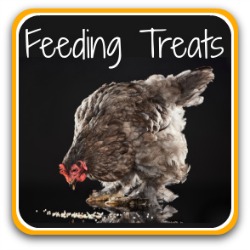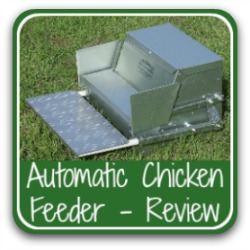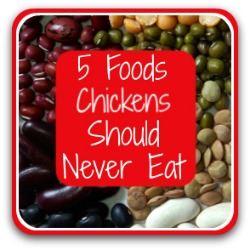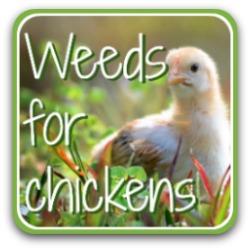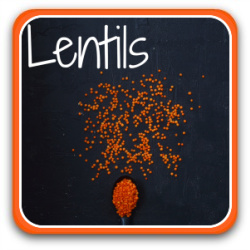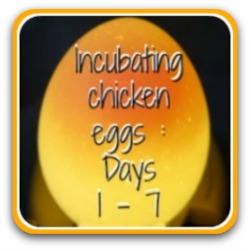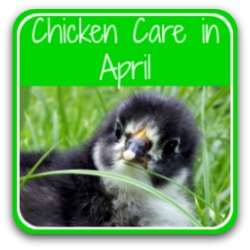Can chickens eat meat? And is it healthy for them?
Are chickens vegetarian, or do they eat meat? And if so, what kind of meat is good and what's bad for them?
Let's get this straight: chickens are not vegetarians. They're omnivores. They'll eat more or less anything that comes their way, including meat.
If you've ever watched a flock pull up and devour an earthworm or other bugs, or chase a mouse or a frog across the run, you'll absolutely know this to be true.
They are ruthless!
Of course, they will eat vegetables and garden plants too. But given the choice, meat (preferably raw meat) will win every time.
The real question is...
Is meat good for chickens?
Meat and protein.
Meat is a high protein food(1). Healthy chickens do need some protein, and around specific events will need still more: moulting, for example, when protein is required to grow new feathers. Or after a stressful event such as a predator attack.
And laying hens, particularly those whose eggs will be used to hatch chicks, need protein to remain healthy.
But too much protein can harm a chicken's liver and kidneys(2, 3). As with everything in chicken keeping, the answer is moderation.
Meat and fat.
Meat tends also to be high in fat, and, just like for humans, eating too much fat is not something chickens should do. It can lead to obesity, which is known to be a potential factor in Sudden Chicken Death Syndrome.
Should chickens only eat grain?
No.
Chickens rely on a protein based amino acid called "methionine". Methionine is an important antioxidant which helps strengthen the immune system.
Without it, chickens are likely to become ill and to develop behavioural issues, in particular pecking each other as they try to find protein.
Chickens who are able to eat protein have a natural source of methionine. Those who only eat grain need an unnatural, synthetic form added to their diet.
 Commercial chickens eat grain, supplemented with synthetic protein.
Commercial chickens eat grain, supplemented with synthetic protein.So a source of protein is critical for your chickens' health and wellbeing.
How to know when chickens can eat meat?
Your chickens' main source of nutrition should be a well balanced feed, suited to their age and laying status.
Left to forage, chickens will find meat in the form of bugs and the occasional mouse, for example. But they will also eat plants, weeds and any fruit and vegetables they come across.
Offering treats to chickens is something we all want to do. But it should be done in moderation and should not make up more than 5% of their feed.
So if you're going to offer additional meat as part of any treat, do it in the afternoon, after the flock has had the chance to eat their feed.
And no more than two, maximum three times per week.
Otherwise, let your flock forage for their raw meat!
 Let your chickens forage for their own meat!
Let your chickens forage for their own meat!Can baby chicks eat animal meat?
No.
Insects are fine – mother hens will source them for chicks from a couple of weeks old – but animal meat is much too high in protein for a young chick.
Feed your chicks a well balanced, high quality chick feed and if you want to feed treats, take a look at my article about how to source natural "gourmet" treats for baby chicks.
What types of meat can chickens eat?
Can chickens eat raw meat?
The bugs, rodents and worms that chickens will eat while free ranging are in effect raw meat. So yes, chickens can eat raw meat.
Obviously, make sure the meat is fresh and showing no signs of rotting, and remove it from the run if it's not been eaten by roosting time.
Fresh meat left in a run is the perfect way to attract both rodents and predators.
What about cooked or processed meat?
Give your flock the carcass from your Thanksgiving or Christmas turkey and they'll strip it bare. They'll do the same with fish bones.
But luncheon meat, sausages, beefburgers, or any other kind of processed meats are a no-no.
They contain too much fat and carbohydrate and too many added sugars, salts and preservatives.
Just don't do it. Try making some healthy sprouted seeds instead.
 "Never mind the sprouts – where's the meat?!" My chickens aren't impressed!
"Never mind the sprouts – where's the meat?!" My chickens aren't impressed!Can chickens eat dog food (meat based, wet)?
The short answer is yes, in the sense that it won't kill them.
But dog food is a processed product balanced for dogs, not for chickens. And the inexpensive varieties tend to be grain based with "animal derivatives" and "inorganic matter", plus artificial colouring, flavourings and preservatives.
It also tends to be high in fat and often has added sugars.
So be careful. Remember that in the UK, the 1994 outbreak of BSE (bovine spongiform encephalopathy, also known as "mad cow disease") and Foot and Mouth disease in 2001 were caused by feeding processed animal protein to cows.
For that reason, the EU has tight regulations about feeding processed animal protein of any kind. For more information, see here.
If you must feed dog food to chickens, use it sparingly. Better still, donate it to your local dog shelter.
Insects as an alternative to feeding chickens animal meat.
 Even a six week old chick loves insects!
Even a six week old chick loves insects!Rather than feed animal meat to chickens, why not follow more closely what happens if they are left to follow natural instincts: feed them a high nutritional quality meat product in the form of insects.
Insects not only provide a good source of protein, their production commercially releases relatively small amounts of greenhouse gases, unlike animal meats(5, 6).
So as well as offering your flock a higher quality of food, you're contributing to the conservation of the planet.
Black soldier fly larvae are particularly nutritious, and contain more calcium than mealworms – a bonus for laying hens.
(This is an "affiliate link", which means that if you click and buy something, I earn a small commission at no extra cost to you)
And although in Europe even processed insect protein has been banned as a feed for farm animals (including poultry), the European Commission together with the UK's DEFRA is considering relaxing those rules imminently, "providing safeguards to public and animal health are ensured".
A note about mealworms.
The same concerns related to feeding animal protein to chickens in the EU relate to dried mealworms.
Putting it simply, mealworms tend to be imported, and are not subject to strict regulation.
So they may have been fed poor quality animal protein which could then pass disease into both the animal and human systems.
Fresh insects are fine. It's the dried varieties which cause the issues.
Click here or on the button for more detailed information, and a way to start your own mealworm farm!
Want to know more about what chickens can safely eat?
These articles are all focused on health and food needs.
Sources.
A lot of "facts" you'll find on the internet are often people's individual views, based on inaccurate information repeated from poor quality sources.
The information I provide in this article and others is based not just on my own experience, but on evidenced facts from scientific, peer-reviewed research and books from highly respected and experienced poultry keepers such as Gail Damerow.
Some of the trusted sources I have used in this article are these.
1. Johns Hopkins Medicine: The Protein Content of Common Foods. Pub. Johns Hopkins Center for Bariatric Surgery, 2019.
2. Rajaguru, R. W., et al: The Effects of Feeding High Protein Diets to Chickens. Pub. Journal of Poultry Science, 1966.
3. Almquist, H. J. and Asmundson, V. S.: High Protein Mashes for Broilers. Pub. Journal of Poultry Science, 1944.
4. Fouad, A. M., and El-Senousey, H. K.: Nutritional Factors Affecting Abdominal Fat Deposition in Poultry: A Revew. Pub. Journal of Animal Science, 2014.
5. Store, Laura, et al: Housefly larvae contribute to sustainable layer nutrition. Pub. Poultry World, 2020.
6. Tuferelli, V. et al: Feeding Forage in Poultry: A Promising Alternative for the Future of Production Systems. Pub. MDPI Journal of Agriculture. 2018.
A note about feeding kitchen scraps in Europe.
European Feed Regulations.
Please note: I am required to tell you that currently in Europe, including the UK, regulations state that chickens should not be fed any foods which have been in a kitchen, whether the kitchen is a professional or a domestic one.
This includes meats, vegetables and
any kitchen scraps and it applies to all backyard chickens, however large or small the flock, and whether or not
you sell their eggs or meat to others.
Furthermore, the sale of dried mealworms for consumption by chickens is also illegal, although you will still find the product available, labelled 'for birds'.
This is related to concerns about the transmission of disease, and mealworms being imported from countries where quality control is poor.


